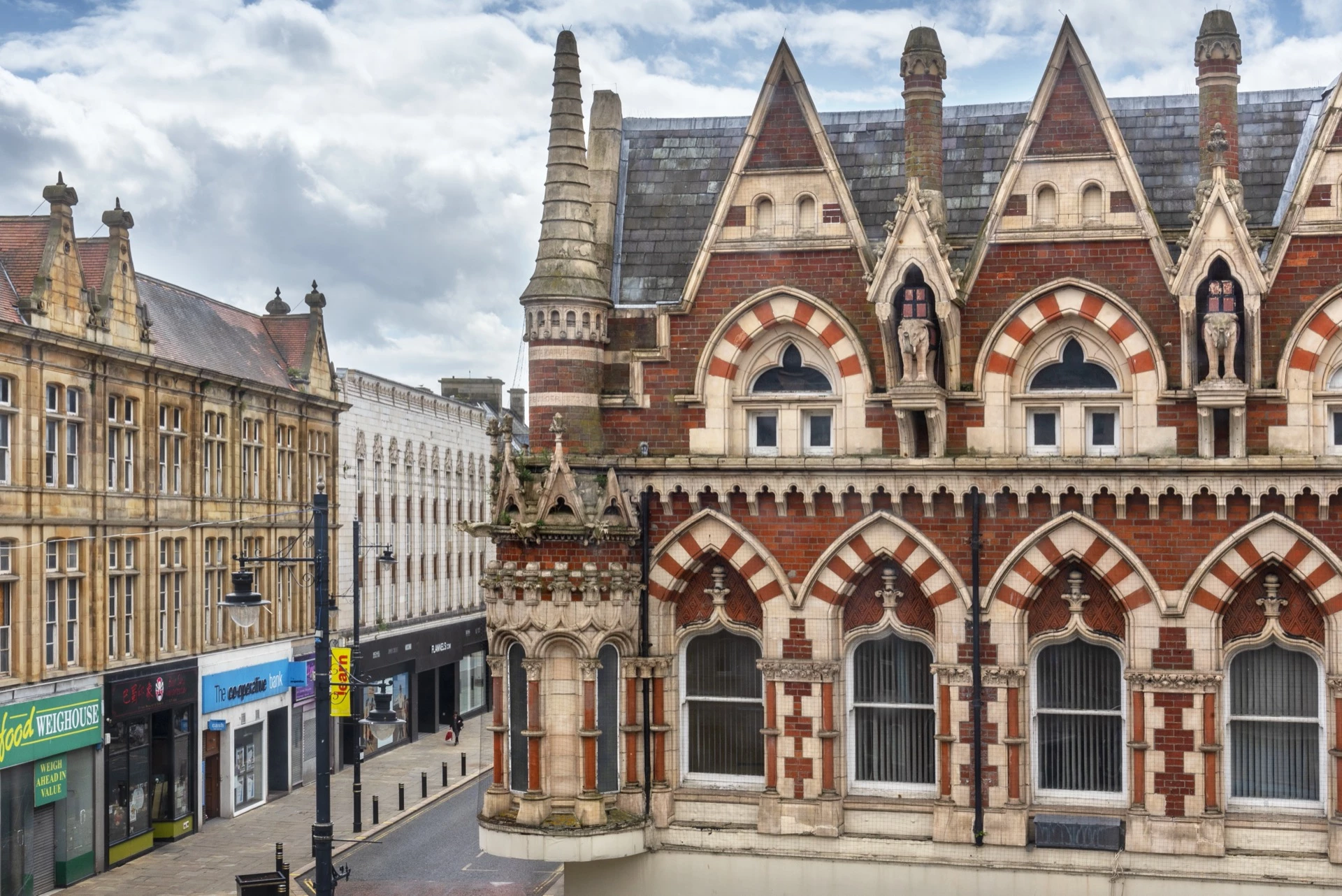
"Historic” Sunderland landmark set to open to the public amid restoration works
Restoration works to transform a historic Sunderland landmark have gathered pace and members of the public are being offered the chance to see work in progress.
The Grade II listed Elephant Tea Rooms is undergoing external repair and enhancement works designed by Mosedale Gillatt Architects Ltd, including “striking” new shop fronts and the reinstatement of lost decoration and features.
To give members of the public further opportunities to explore the history of part of Sunderland’s high street, as well as learn more about and participate in the specialist repair techniques used in the restoration of the famous Elephant Tea Rooms, a series of hard hat tours and terracotta masterclasses will take place on February 15 and 16, and March 8.
Organised as part of Sunderland’s Heritage Action Zone (HAZ) heritage skills programme and facilitated by local contractor, NCS Ltd, and Sunderland stonemasons, Mason and Forster Ltd, booking for the tours and masterclasses is now open.
Attendees will get the chance to see the new Georgian style timber shop front, which is nearing completion, as well as the start of specialist restoration work to the building’s terracotta features, including the ornamental elephants and gargoyles.

Sean Anderson, managing director of NCS Ltd, commented: “We are delighted to be welcoming members of the public to a series of Hard Hat Tours, showcasing the intricate and carefully considered work being undertaken on this iconic building in Sunderland.”
Located at the corner of High Street West and Fawcett Street, the building is one of the architectural highlights of Sunderland and the transformation is expected to be complete by August this year.
Constructed at the height of Victorian wealth and investment in Sunderland and opened to the public in 1875 as a grocer’s shop and tea warehouse for Grimshaw & Son, the building has a distinctive Hindu Gothic style.
The external restoration project is being supported with a total of £720k funded by Sunderland City Council, Historic England and the Department for Levelling Up, Housing & Communities (DLUHC) through the Future High Street Fund and Heritage Action Zone (HAZ) projects.
Councillor Graeme Miller, leader of Sunderland City Council, added: “This is a fantastic opportunity for the public to see how traditional craft skills are being used to restore and protect a beautiful landmark in our city centre.”
By Matthew Neville – Senior Correspondent, Bdaily
- Add me on LinkedIn and Twitter to keep up to date
- And follow Bdaily on Facebook, Twitter and LinkedIn
- Submit press releases to editor@bdaily.co.uk for consideration.
Looking to promote your product/service to SME businesses in your region? Find out how Bdaily can help →
Enjoy the read? Get Bdaily delivered.
Sign up to receive our daily bulletin, sent to your inbox, for free.






 A legacy in stone and spirit
A legacy in stone and spirit
 Shaping the future: Your guide to planning reforms
Shaping the future: Your guide to planning reforms
 The future direction of expert witness services
The future direction of expert witness services
 Getting people into gear for a workplace return
Getting people into gear for a workplace return
 What to expect in the Spring Statement
What to expect in the Spring Statement
 Sunderland leading way in UK office supply market
Sunderland leading way in UK office supply market
 Key construction developments in 2025
Key construction developments in 2025
 Mediation must be part of planning process
Mediation must be part of planning process
 From apprentice to chief financial officer
From apprentice to chief financial officer
 Don't stifle growth with apprenticeship cuts
Don't stifle growth with apprenticeship cuts
 The start-up landscape: What lies ahead in 2025
The start-up landscape: What lies ahead in 2025
 JATCO adds welcome drive to automotive sector
JATCO adds welcome drive to automotive sector